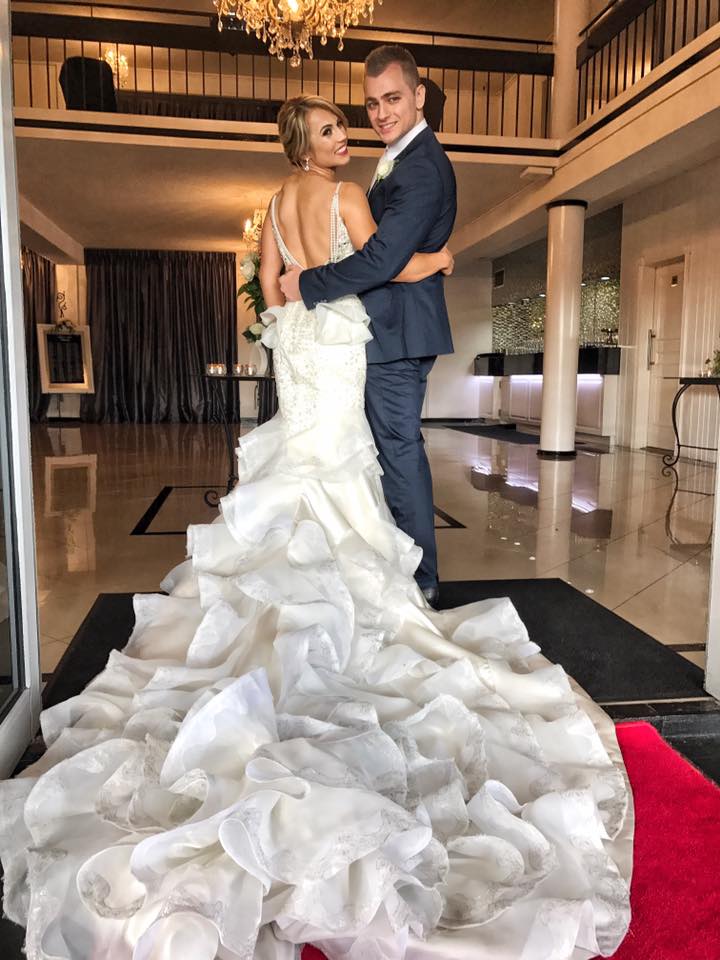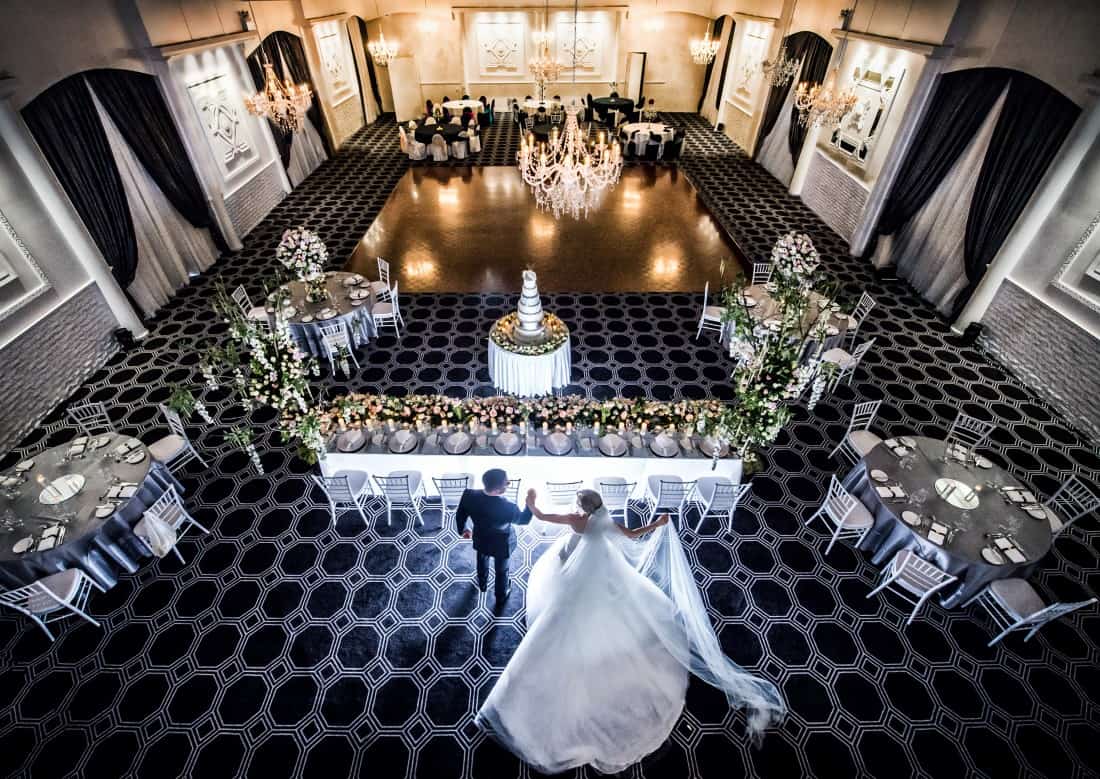Starting wedding planning as early as possible is ideal, typically around 12 to 18 months before your desired wedding date. This gives plenty of time to book well-liked locations and suppliers. It fills up fast, particularly during the wedding season. Early planning also reduces stress, allowing you to make thoughtful decisions about your budget, guest list, and overall wedding vision. However, the exact timing can vary based on the complexity of your wedding plans and personal circumstances, so it’s important to consider your unique situation when deciding when to begin.
Let’s Get Straight to the Point
Starting your wedding planning 12 to 18 months before your desired date is ideal, giving you ample time to secure popular venues and vendors and reducing stress. If your wedding is more than 18 months away, you can take a more relaxed approach, starting with discussions about your wedding vision and budget.
For weddings a year away, begin with a guest list and budget after enjoying a few weeks of engagement bliss. If you have less than a year, focus on key decisions like booking your venue and vendors first.
As you get closer to the wedding date, follow a structured timeline:
- 14-12 Months Out: Choose a venue, set the date, and decide on the wedding’s overall look.
- 12-9 Months Out: Select vendors, start dress shopping, and choose your wedding party.
- 8-6 Months Out: Book an officiant, line up remaining vendors, and send save-the-dates.
- 6-4 Months Out: Finalise the menu, arrange attire for the groom, and start honeymoon planning.
- 3-2 Months Out: Decide on printed materials, obtain a marriage license, and schedule dress fittings.
- 2-3 Weeks Out: Focus on personal grooming and assign a point person for the day.
- Week of the Wedding: Confirm details, prepare vendor payments, and enjoy the final touches.
After the wedding, send thank-you cards and handle any necessary name changes. Discuss your engagement length early to shape your planning timeline, and enjoy the process of planning your celebration with loved ones.
If Your Wedding Is More Than 18 Months Away
A long engagement allows for a relaxed approach to wedding planning. With ample time, you can take advantage of a wide selection of venues and vendors without feeling rushed.
- Enjoy the Engagement: Take a month to celebrate without jumping straight into planning.
- Initial Considerations: Begin by discussing your wedding vision and budget.
If Your Wedding Is A Year Or More Away
A year is a typical timeframe for wedding planning, offering a balance between having enough time and maintaining momentum.
- Wait Three Weeks Before Planning: After your engagement, take some time before diving into the details.
- Start with the Basics: Begin with a rough guest list and a preliminary budget.
If Your Wedding Is In Less Than A Year
Planning a wedding in under a year is possible, though it requires more focus.
- Take Two Weeks Off After Engagement: Before planning, enjoy the engagement period.
- Prioritise Key Decisions: Focus on booking your venue and key vendors first.
If Your Wedding Is Six Months Away
Many couples successfully plan weddings in six months or less. The key is to stay organised and prioritise.
- Relax and Plan: Take a week to bask in the engagement before beginning the planning process.
- Use a Six-Month Timeline: Follow a structured timeline to ensure all critical tasks are completed.
If Your Wedding Is Three Months Away
A three-month timeline requires immediate action but is still achievable.
- Start Planning Quickly: Begin organising as soon as possible, focusing on the essentials.
- Streamline Your Decisions: Make quick, decisive choices to keep the planning on track.
Wedding Planning Timeline
Immediately After The Engagement
Regardless of the length of your engagement, the initial steps remain the same.
- Determine the Approximate Budget: Establish your overall budget before making other decisions.
- Estimate the Number of Guests: A preliminary guest list helps determine venue size and budget considerations.
14 To 12 Months Out
- Choose a Venue: The venue choice is critical and depends on your guest list and budget.
- Nail Down the Date: Secure your wedding date as soon as possible, considering venue availability and guest schedules.
- Decide on the Overall Look and Feel: Select your wedding colours and theme to guide your decisions on décor and attire.
12 To 9 Months Out
- Select Your Vendors: Book key vendors such as photographers, videographers, and musicians early.
- Begin the Dress Search: Start looking for your wedding dress and schedule fittings well in advance.
- Choose Your Wedding Party: Decide who will stand by you on the big day.
8 To 6 Months Out
- Book an Officiant: Whether a religious figure or a legal official, secure your officiant early.
- Line Up the Second Round of Vendors: Caterers, florists, and hair and makeup artists.
- Send Save-The-Dates: Inform your guests early, especially if they need to travel.
6 To 4 Months Out
- Set the Menu: Finalise your catering choices and schedule a tasting.
- Rent or Order Tuxes: Ensure the groom and groomsmen are outfitted with plenty of time for adjustments.
- Start Planning the Honeymoon: If international travel is involved, begin the necessary preparations.
3 To 2 Months Out
- Decide on Printed Materials: Choose your invitations, programs, and other paper goods.
- Obtain a Marriage License: This is a critical step that must be considered.
- Schedule a Dress Fitting: Make sure your dress is perfectly tailored.
2 To 3 Weeks Out
- Take Care of Personal Grooming: Schedule haircuts, facials, and other beauty treatments.
- Assign a Point Person: Designate someone to manage vendor coordination if you need a wedding planner.
Week Of The Wedding
- Final Touches: Confirm all details with vendors and the wedding party.
- Vendor Tips and Payments: Prepare labelled envelopes with tips and final payments.
- Belonging Collection: Arrange for someone to collect personal items and gifts after the event.
Day Of The Wedding
- Wedding Bands: Assign the best man and maid of honour to keep these safe.
- Officiant’s Fee: Make sure this is handled discreetly.
- Enjoy the Day: After all the planning, take the time to soak in the moment.
After The Wedding
- Thank-You Cards: Send these out promptly to express your gratitude.
- Name Change: If applicable, begin the process of changing your name.
One Important Conversation To Have Immediately
While it’s tempting to jump straight into wedding planning, one of the first conversations you should have is about the length of your engagement. This choice will impact the remainder of your planning process.
- Discuss the Timeline: Agree on how long your engagement will be and what kind of wedding you envision.
- Set Expectations: Align on how involved you will be in planning.
Planning a wedding is a significant undertaking, but it can be a joyful and rewarding experience with the right approach. Whether you have 18 months or just a few weeks, this guide will help you confidently navigate each step. Take the time to enjoy your engagement, and remember that the day is about celebrating your love with the people who matter most.




